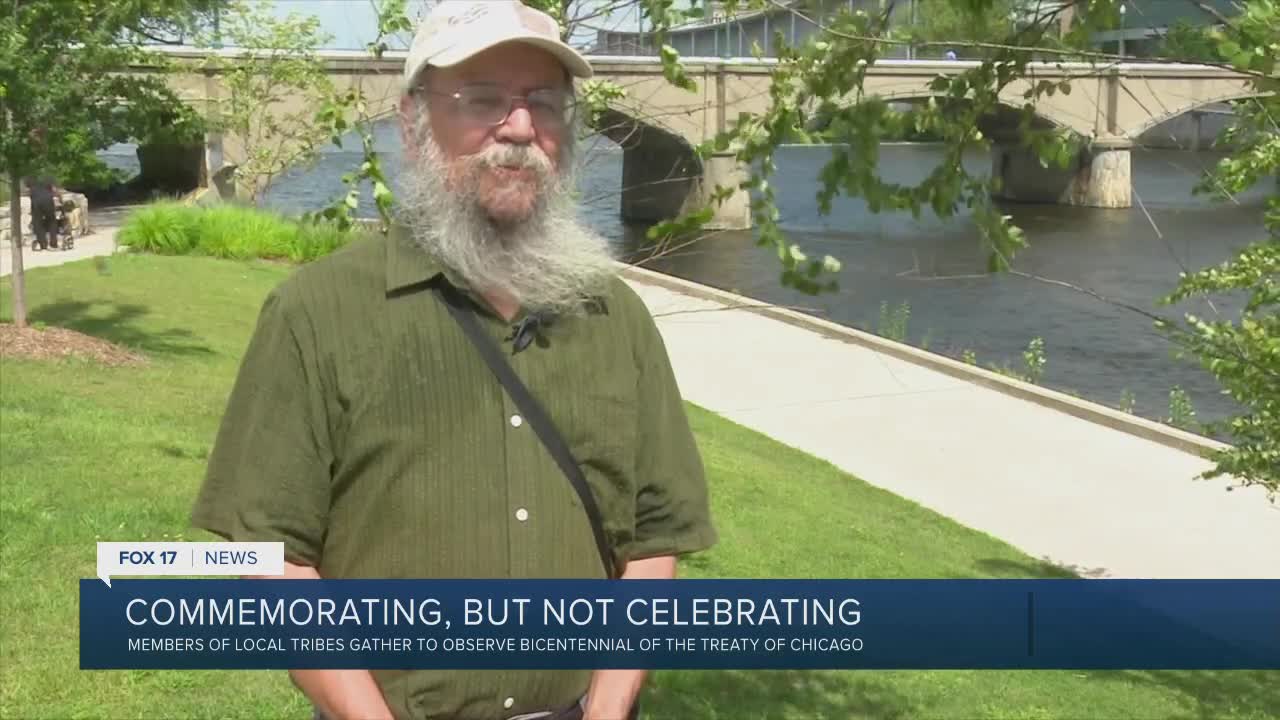GRAND RAPIDS, Mich. — Sunday marked the 200th anniversary of an agreement that cleared the way for the settlement of Grand Rapids and Southwest Michigan.
Members from the Grand River Bands of Ottawa Indians and the city of Grand Rapids sang, spoke, and dedicated a plaque to commemorate, rather than celebrate, the bicentennial of the Treaty of Chicago of 1821.
“The Treaty of Chicago seized land, over a million acres, in Southwestern Michigan,” said Ron Yob, Grand River Bands of Ottawa Indians tribal chairman. “It paved the way for the state of Michigan and the city of Grand Rapids.”
On August 29, 1821, tribal leaders from Ottawa, Potawatomi, and Chippewa signed the agreement with the United States. It ceded much of the land south of the Grand River and west of Jackson.
However, according to historians, those signatures came under duress and tribal leaders never intended to give up their territory, but offer it instead on a humanitarian basis.
Over the years though, the United States colonized the region and established cities like Grand Rapids, which was incorporated in 1850. Subsequent treaties pushed the Native American people out of the region.
“This spot, where we’re living at now, at one point was, like I said, was our Garden of Eden,” Yob said. “It provided everything we needed. Whether it’d be shelter for living spaces, whether it’d animals for sustenance, whether it’d be the water.”
While the treaty is seen as a source of pain, there is hope. Yob believes it proves the Grand River Bands of Ottawa Indians is a sovereign nation. He thinks the anniversary could push the federal government to finally recognize their status after decades of trying to do so.
“You can’t exercise Indian health services, you can’t exercise educational programs,” Yob said. “We’re kind of like a donut with a hole because we’re surrounded by recognized tribes and we’re going through that process ourselves. It just opens up a lot of rights to you that you can’t open up without that reaffirmation of our status.”
Yob's hope is to form a more perfect union.
“There’s forest removals, diseases, a lot of - I don’t want to talk about bad things - but things to remove us from here and we’re still here,” said Yob. “We’re not going anywhere.”




